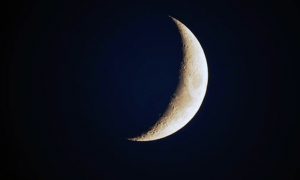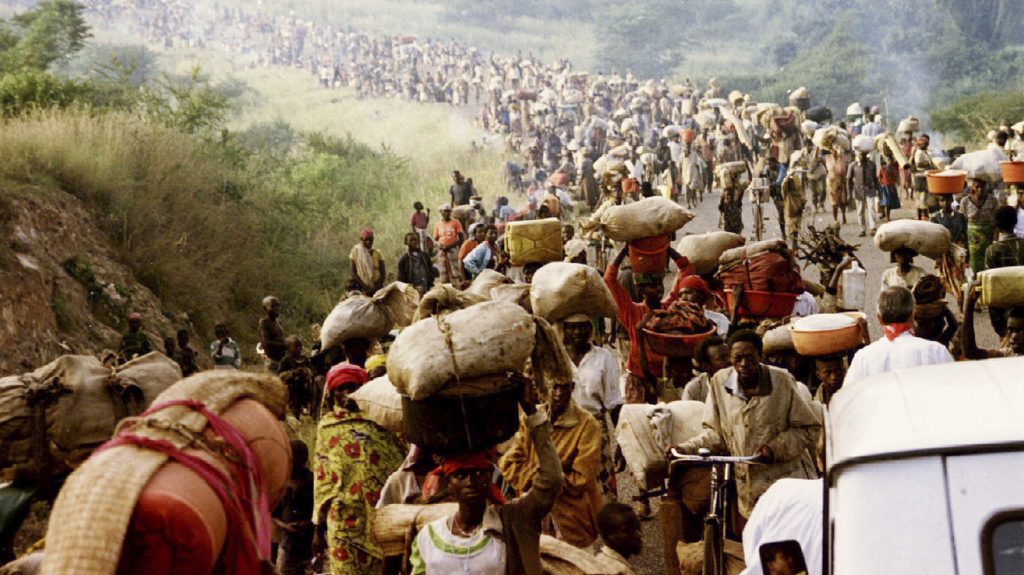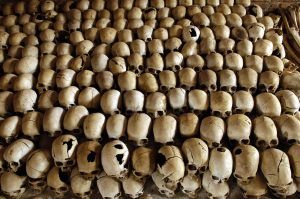#Culture
Breakfast With The Khans [Act Two] – Truth & Lies
As the Khan family sits down to breakfast on a Sunday morning, the imam drops by unexpectedly, and Mahmood Khan’s nephew Abdullah reveals a dark family secret.
Published

As The Khans sit down to breakfast on a Sunday morning, the imam drops by unexpectedly, and Mahmood Khan’s nephew Abdullah reveals a dark family secret.
This is Act Two of a two-act play. You can read Act 1 here.
[Author’s Note: Next week I will return to All That Is In The Heavens, inshaAllah].
Keep supporting MuslimMatters for the sake of Allah
Alhamdulillah, we're at over 850 supporters. Help us get to 900 supporters this month. All it takes is a small gift from a reader like you to keep us going, for just $2 / month.
The Prophet (SAW) has taught us the best of deeds are those that done consistently, even if they are small. Click here to support MuslimMatters with a monthly donation of $2 per month. Set it and collect blessings from Allah (swt) for the khayr you're supporting without thinking about it.
* * *
Cast of Characters:
Abba (Dad): Mahmood, 50, architect.
Ammi (Mom): Uzma, 40, fashion YouTuber.
Son #1, Ali: 17, moody & withdrawn.
Son #2, Jaber: 15, plays baseball.
Jaber’s friend Joey: 15, also on the baseball team.
Daughter, Hajar: 10, genius.
Abdullah: 38, from Rwanda. Mahmood’s nephew.
Imam Salahuddin
Scene 1 – I Tried A Hundred Times
Setting: Kitchen of a suburban house. Late morning on a Sunday.
The family has finished eating.
ABDULLAH (pats his stomach): I’m getting fat in America.
JOEY: Is there any more?
ABBA: الْحَمْدُ لِلَّهِ الَّذِي أَطْعَمَنَا وَسَقَانَا وَجَعَلَنَا مُسْلِمِينَ
All praise is due to Allah Who gave us food and drinks and ordained us as Muslims.
AMMI: Hajar, clear the table. Jaber, you wash, and Joey, you dry.
ABDULLAH: I can help.

ALI: I’m an adult?
AMMI: You’re seventeen. It’s time to grow up. The smoking stops now, do you understand?
ALI (throws up his arms): I tried! You think it’s so easy? I tried a hundred times. When I quit I get the shakes, I can’t concentrate, I can’t sleep. I feel sad and angry. Three times I gave away my kit, but I couldn’t do it. I gave away all my allowance money so I wouldn’t be able to buy refills. But I couldn’t do it, I had to clean windshields at the gas station to make money to buy more. It’s useless, I’m stuck, I’m trapped. I’m gonna do it until it kills me!
AMMI: You will stop now. And we will get you whatever help you need, I promise. Right, Abba?
ABBA: Yes.
AMMI (to Abba): Go hug your son.
Abba does not move.
AMMI: (more sternly): Go hug your son.
Abba goes to Ali, but Ali pushes him away. Abba grabs him, pulls him to his feet, and embraces him. After a moment, Ali hugs him back. Jaber joins them and hugs them too, and Hajar places a hand on Ali’s back.
ABDULLAH: MashaAllah, mashaAllah.
JOEY: You guys are weird.
Jaber goes back to washing dishes, and Hajar to her computers. Abba stands with one arm around Ali’s shoulders.
ABBA: We are Khans. Our ancestors were warriors and conquerors. We will overcome.
No one speaks.
ABBA (speaking to Ali): We will overcome.
ALI: Like we do.
ABBA: As we do.
Scene 2 – Perfect Timing
The doorbell rings, Jaber rushes to answer it, exiting stage right. He calls from stage right:
JABER: The Imam is here!
ABBA: Oh, I forgot! He asked me yesterday if he could drop by.
AMMI: (angrily): Wonderful. I have nothing to serve him.
Abba goes to the door, returns with the Imam.
IMAM SALAHUDDIN: As-salamu alaykum everyone.
EVERYONE EXCEPT JOEY: Wa alaykum as-salam.
AMMI (smiling widely): Shaykh, how wonderful of you to drop by! Sit, I’ll get you some haleem and naan.
IMAM SALAHUDDIN (holds up a hand): Uhh, no. Spicy minced beef is a little too strong for me for breakfast. I see you’re having coffee, I would love a cup.
The Imam sits next to Ali, with Abba on his other side.
IMAM SALAHUDDIN (to Ali): I haven’t seen you in the Islamic studies Sunday school class lately.
ALI: I’m too old for that.
JABER: He just got caught smoking.
ALI (to Jaber): Rat! (to Imam Salahuddin): I’m quitting.
IMAM SALAHUDDIN (claps Ali on the shoulder): Then this is perfect timing!
ABBA (crosses his arms, frowning): What do you mean?
IMAM SALAHUDDIN: Ramadan!
AMMI: That’s right, Ramadan is coming soon.
Ammi sets a cup of coffee in front of Imam Salahuddin, and a small plate with three mini cinnamon rolls (or any cookie or sweet).
JABER (snaps his fingers): And you can’t smoke in Ramadan!
JOEY: Cinnamon rolls! (he snatches one) Score!
Jaber punches Joey in the shoulder.
JABER: Dude!
JOEY (eating the cinnamon roll): You snooze you lose.
Scene 3 – Ramadan

ALI (solemnly): Rasulullah, sal-Allahu alayhi wa sallam, said, “When the month of Ramadan begins, the gates of the heavens are opened, the gates of Jahannam are closed, and the shayateen are chained.”
IMAM SALAHUDDIN: Very good mashaAllah. Which means that in Ramadan you won’t have to battle the whispers of Shaytan, only your own desires.
JOEY (to Jaber): This is boring. Let’s go play Solitary Soldier.
Joey and Jaber exit stage left.
IMAM SALAHUDDIN: What else about Ramadan makes it a good time to quit smoking?
AMMI: It’s a month of sacrifice, when we abandon our pleasures to strengthen ourselves.
ABDULLAH: It’s a time of transformation. A spiritual training ground for life, when we struggle in the cause of Allah 
IMAM SALAHUDDIN: Precisely. Good points. I’ll tell you something interesting. Here in the West everyone thinks the goal of life is to be happy. Which means making money. Being rich. Or being popular. Having the most social media followers. But in the Quran, the word “happiness” is mentioned only once, and that is in the context of the aakhirah. When you set your right foot in Jannah, that is when you experience happiness. This life, this dunya, is a place of tests and suffering.
And wealth does not make you immune. Sickness, confusion, the death of our loved ones, these things are woven into the fabric of life. We cannot avoid them, we can only struggle in the cause of Allah 

ٱلَّذِينَ ءَامَنُوا۟ وَتَطْمَئِنُّ قُلُوبُهُم بِذِكْرِ ٱللَّهِ ۗ أَلَا بِذِكْرِ ٱللَّهِ تَطْمَئِنُّ ٱلْقُلُوبُ
Those who have faith and whose hearts find peace in the remembrance of Allah 

And Ramadan, as you said brother Abdullah, is exactly the time to engage in this struggle. (Turns to Ali) So this, brother Ali, is your opportunity. Also, from a practical point of view, I counsel people on these things sometimes. You have to replace the smoking habit with something else. It could be exercise. Or drinking water, or even coffee, which is maybe also addictive (hoists his cup of coffee), but is not bad for you.
Scene 4 – Imam Leaves
ABDULLAH: My mother used to smoke. When I was little. I remember it, vaguely. I used to tell her that her breath smelled bad. She gave it up, after the genocide. She said that when death surrounds you on every side, why should you help it by killing yourself? But then she died anyway, a year later. Her wounds never healed completely. I did not understand it back then, I was only a boy. But I think her spirit was so shocked that her body could not heal. Allahu a’lam.
ABBA: Abdullah, I asked you not to talk about that.
JABER: Wait… I thought Sonia Phopho died in a car accident?
ABBA: Let’s change the subject.
IMAM SALAHUDDIN: This is a private family discussion, I don’t want to intrude. Abu Ali, I was going to talk to you about sponsoring a boys’ soccer team. I will call you. (He rises).
ABBA (looks uncomfortable): Oh… okay.
IMAM SALAHUDDIN: Enjoy your day everyone. As-salamu alaykum.
EVERYONE EXCEPT JOEY: Wa alaykum as-salam.
Imam Salahuddin exits stage right.
ALI: Abba, why don’t you ever want to talk about Sonia Phopho? You always change the subject. We don’t even have any pictures of her.
AMMI: I think it’s time to tell them the truth, my love.
ABBA: No! There’s too much going on right now.
ALI: The truth about what? You mean you’ve been lying? After that lecture you just gave me about tawasaw bil-haq, and how we don’t deceive each other in this family?
ABBA: It was for your protection. You were too young.
ALI: I’m not a kid anymore.
The kitchen is silent for a moment.
ABBA: Fine. But not Hajar. She’s too young. Hajar honey, go to your room.
HAJAR: If this is about the Rwandan genocide of 1994, I already know all about it. Members of the Hutu ethnic majority murdered 800,000 people, mostly of the Tutsi minority. It went on for three months, and the world did nothing.
ABDULLAH: Yes. That is correct. Uncle Mahmood?
Abba looks around. Rubs his face vigorously.
Scene 5 – An Idealist
ABBA: My big sister (gestures to the kids) – your Sonia Phopho – was an idealist. She majored in peace studies in college, which infuriated our parents, who wanted her to become a doctor. She worked as a teacher for a while. But she wanted to do more to help humanity. She had a good friend in college, a foreign student named Juliette, from Rwanda. Juliette told Sonia about how beautiful Rwanda was, with the lakes, the forests, the million hills –
ABDULLAH: Thousand hills, Uncle.
ABBA: Whatever. But Rwanda had serious problems, including an ethnic conflict between the Hutus and the Tutsis. So instead of staying away like a normal person, she decided to move there. She got a job as a project manager with an Islamic relief organization in Kigali, the capital. That was in 1984. She fell in love with one of her colleagues, a Muslim Rwandan from the Tutsi tribe, and married him.
ABDULLAH: My father. Abdussalam Nduwimana.
ABBA: Our parents refused to attend the wedding.
ALI: Because her husband was a black African?
ABBA: Yes, partly. Which was one hundred percent dead wrong of them. And also because Sonia wanted to stay in Rwanda, she didn’t want to return here. She’d fallen in love with the country. I went to the wedding. I liked Abdussalam. And I respected Sonia’s decision. I looked up to her, she was like a hero to me. She was the bravest person I ever met. (Gets emotional, cannot continue).
Scene 6 – Before the Genocide
ABDULLAH: I will tell the rest. (Takes a sip of his coffee) Rwanda has two primary ethnic groups. The Hutus are 85%, and the Tutsis 15%. The Germans and Belgians who occupied Rwanda favored the Tutsis, who were considered racially superior because they were taller and had supposedly Caucasian features. Each citizen was issued a racial identification card, which defined one as legally Hutu or Tutsi. Tutsis were put in positions of power over Hutus, who were shorter and darker.
Rwanda is mainly Catholic. Before the genocide, Muslims made up 4% of the population, and included Tutsis and Hutus, and some Arabs and Indians. This will be important later in the story. Also, at that time, Islam was mistrusted. Muslims were even banned from government jobs. In 1960, the main masjid was burned. All of this was done with the encouragement of the Catholic church.
There was tremendous resentment by the Hutus against the Tutsis. In 1959, the Hutus overthrew the Tutsi king. Thousands of Tutsis fled and formed a rebel group that fought against the Hutus for decades. Tutsis began to be persecuted. Hutus called them cockroaches and snakes. The radio stations started saying that all Tutsis would be killed. My father was a lawyer and he was fired from his job. My mother was a teacher at the same school I attended. The Hutu boys would beat me, and my mother would get very angry, but there was nothing she could do. Then they beat me with rocks until I was unconscious. So when I was eight I stopped going to school, and my two sisters too. That was 1993.
I want to say that my mother was the kindest person I ever knew. She used to make dua’ for my grandparents, even after they stopped speaking to her. I saw her doing this every day. She made dua’ for the people of Rwanda, and even for the boys who beat me. I have never seen anyone like her.
Scene 7 – The Genocide
HAJAR: I didn’t know you had sisters.
ABDULLAH: I do not anymore. So… I saw the fear on my parents’ faces, but I thought it was temporary and that I would go back to school. Then in 1994, an airplane carrying the president of Rwanda was shot down. The radio stations blamed the Tutsis. They said all the cockroaches must be killed. And they began to kill us, everywhere in the country. They killed men, women, and children. Neighbors killed neighbors. Everyone’s ID card said if they were Hutu or Tutsi, so militias set up roadblocks and Tutsis were killed on the spot. Most of this was done with machetes. Many Tutsi women were taken as slaves.
It was not only men who did the killing. Women participated too. If any Hutus spoke against the genocide, they were killed too. Catholic priests offered Tutsis shelter in the churches, then they locked the doors and called the Hutu militias to come kill them, or burned down the churches.
No one interrupts Abdullah’s speech. Everyone looks horrified or shocked. Abdullah continues:
ABDULLAH: We could not stay in our home. We learned that the Muslims of Rwanda were protecting people. They took Tutsis into their homes and masjids, and would not let them be killed. The Hutus were afraid to enter the masjids because of superstition. It was an extraordinary thing. My parents had always been heroes to me, and now I saw that the Muslims of Rwanda as a people were heroes, they were courageous like lions.
We split the family. My sister Amira was sick and could not travel, so my mother and sisters took refuge in a masjid, while my father and I fled on foot with the goal of reaching Uganda.
I later learned that the masjid in which my mother and sisters sheltered was attacked. The Muslims fought back with bows and arrows. For two weeks the Hutus could not enter. None of the people in the masjid had food, they were starving. Then the Hutus brought guns and they overwhelmed the masjid and began killing people. My mother was shot in the stomach. My sisters were taken away. We never saw them again.
Meanwhile, my father and I encountered a roadblock. We tried to run, but they chased us. My father was a gentleman who always had a smile on his face, but he was big and strong, and he had brought a machete with him. He told me to run and to continue to Uganda, while he fought our pursuers. I looked back to see him fighting them, though he was outnumbered five to one. Then I ran.
To make a long story short, I reached Uganda. I was given food and shelter by aid workers. The genocide went on for 100 days, until the Tutsi rebels invaded Rwanda and put a stop to it. Almost a million people had been killed.
Scene 8 – After The Genocide
ABDULLAH: Three months later I returned to Rwanda on foot. Masses of Hutus were fleeing the country, and many were murderers. I had to hide by day and travel by night. I found my mother bedridden in our home. Her stomach wound had not healed well, and the Hutus had also cut off her lower leg. Her employer was still paying her, and she had hired a nursemaid. We assumed my father was dead. But some months later my father returned. He had survived the fight at the roadblock and reached Uganda, where he was hospitalized.
My mother never recovered her health. Her stomach wound kept getting infected. Uncle Mahmood came and stayed with us. He took care of all of us.
ALI: Abba, you did that?
ABBA: Yes. And your grandparents sent money to help Sonia, but they were afraid to go to Rwanda in person.
ABDULLAH: My mother was a private person, but during that last year of her life, she talked as much as she could. She told me family histories, her own life story, and told me constantly that in spite of all I had seen, I must not give up on humanity. I must keep my faith in Allah 
And that is the story, except for one more thing: huge numbers of Rwandans converted to Islam after the genocide. Everyone knew that the Muslims had acted as heroes. Many Tutsis converted out of gratitude. As well, many Hutus converted as a penance, to wash away their sins. They could not turn to the church, as it was complicit in the killing. So they came to Islam. The percentage of Muslims in Rwanda went from 4% to 15%. All restrictions against Muslims were removed. I have seen here in the USA that when people hear the word “Muslim” they think of backward people, or oppression. But in Rwanda, when you say Muslim, people think of courage, sacrifice, and heroism.
Abdullah stops talking, puts his hands on the table, and looks around. Ali goes to him and hugs him.
HAJAR: What about your father?
ABDULLAH: He is alive, and lives in the same house in Kigali. He is retired, but he is still a strong man, and still humble and sweet…
As Abdullah continues to talk, the curtain is drawn on the stage. His voice gradually fades.
Scene 9 – The Contract
The curtain opens to reveal Abba and Ammi alone at the kitchen table. There is nothing on the table but the vaping pipe.
AMMI: It was brave of you to let Abdullah tell that story. I know how much it upsets you.
ABBA: I still don’t think Hajar should have heard it.
AMMI: You were right, actually. I didn’t know it would be that graphic. I’ll talk to her about it later.
Abba’s phone rings. He takes the call, stands, and comes around the table to face the audience.
ABBA: Mr. Granger, hello. It’s good to hear from you. (Pause)… Is this decision final? I could rework the design and resubmit – (Pause)… I see. Yes, I understand. Thank you, sir.
Abba puts away the phone, looks stricken. Ammi goes to stand beside him, takes his arm. Joey appears at the edge of stage left, but Ammi and Abba don’t see him. He watches them silently.
AMMI: You didn’t get the contract.
ABBA: No. I didn’t. (Puts his face in his hands).
AMMI: Meri Jaan, it’s okay. We’ll be fine. We’ll stop eating out. We have three streaming subscriptions, we’ll cancel two. I can earn more, I’ll do some affiliate product tie-ins on my channel. We can even go back to shopping at Goodwill, like when Ali was little. I always loved Goodwill.
Scene 10 – A House On Stilts
JOEY: You guys really care about each other, huh? All this family stuff. I mean, like, you’re not faking it.
AMMI: (spins around) Joey!
ABBA: It’s not nice to eavesdrop on people.
Joey says nothing.
ABBA: No, we’re not faking it.
JOEY: I don’t believe in family. I think it’s all crap.
AMMI: Family is… a place to stand when everything around you is underwater.
ABBA: It’s a house on stilts.
JOEY: I don’t deserve to have that.
AMMI: Why would you say that?
JOEY: I don’t know. Just how it is. Everyone leaves. But I don’t care. Hell with them. I don’t need them.
AMMI: I’m sorry for what you’ve been through.
JOEY: I don’t need your pity! I don’t need anyone. Gotta go now anyway. I have things to do.
AMMI: Why don’t you come over with Jaber tomorrow after school? On Mondays we have homemade pizza for dinner.
JOEY (nonchalantly): Maybe I will.
Joey exits stage right.
ABBA: Imagine. I thought today would be a calm, relaxing Sunday.
AMMI: We plan, and Allah 
ABBA: Babe. You sure you know what you’re doing with this Joey kid?
AMMI: No, I am not sure at all.
ABBA: I want to raise happy and healthy kids. Why is that so hard?
AMMI: It’s the hardest thing in the world. We just have to keep on loving them, no matter what.
ABBA: We’re going to have some tough times ahead.
AMMI: We’re Khans. We’ll be fine inshaAllah. We will figure it out and we will overcome.
Pause… Ammi shakes Abba playfully.
ABBA: Like we do.
AMMI: As we do.
THE END
* * *
Reader comments and constructive criticism are important to me, so please comment!
See the Story Index for Wael Abdelgawad’s other stories on this website.
Wael Abdelgawad’s novels – including Pieces of a Dream, The Repeaters and Zaid Karim Private Investigator – are available in ebook and print form on his author page at Amazon.com.
Keep supporting MuslimMatters for the sake of Allah
Alhamdulillah, we're at over 850 supporters. Help us get to 900 supporters this month. All it takes is a small gift from a reader like you to keep us going, for just $2 / month.
The Prophet (SAW) has taught us the best of deeds are those that done consistently, even if they are small. Click here to support MuslimMatters with a monthly donation of $2 per month. Set it and collect blessings from Allah (swt) for the khayr you're supporting without thinking about it.
Wael Abdelgawad's novels can be purchased at his author page at Amazon.com: Wael is an Egyptian-American living in California. He is the founder of several Islamic websites, including, Zawaj.com, IslamicAnswers.com and IslamicSunrays.com. He teaches martial arts, and loves Islamic books, science fiction, and ice cream. Learn more about him at WaelAbdelgawad.com. For a guide to all of Wael's online stories in chronological order, check out this handy Story Index.


Faith, Identity, And Resistance Among Black Muslim Students

Moonshot [Part 12] – November Evans

From The Prophets To Karbala: The Timeless Lessons Of Ashura For Muslims Today

Moonshot [Part 11] – The Fig Factory

Nationalism And Its Kurdish Discontents [Part II of II]: Kurds And Turkiye After Ottoman Rule

Moonshot [Part 11] – The Fig Factory

Moonshot [Part 12] – November Evans

Moonshot [Part 10] – The Marco Polo

Moonshot [Part 9] – A Religion For Real Life

Nationalism And Its Kurdish Discontents [Part II of II]: Kurds And Turkiye After Ottoman Rule

[Dhul Hijjah Series] Calling Upon the Divine: The Art of Du’a (Part 1)

IOK Ramadan 2025: Four Steps | Sh Zaid Khan

IOK Ramadan 2025: Do Your Best | Sh Zaid Khan

IOK Ramadan 2025: Giving Preference to Others | Sh Zaid Khan







Jamaal
February 27, 2023 at 1:18 AM
Alhamdulillah, very good!
May Allah bless you
Abdullah salman
February 27, 2023 at 8:00 AM
Is this set in the same universe as the other stories in fresno like Hassan’s tale, zaid karim and so one
Wael Abdelgawad
February 27, 2023 at 10:46 AM
Yes, I suppose it is set in the same universe. Imam Salahuddin is the same imam from Zaid Karim.
Wayfarer
February 27, 2023 at 9:25 AM
SubhanAllah! I never knew this about Muslims in Rwanda! And here I was ,thinking I’m a history buff,
The part about how Rwandans think of courage etc when they hear the word Muslim, made me tear up
Few more thoughts, will share later InshaaAllah
To those asking the brother for writing advice on their own work,at least leave your thoughts on his work first
Wael Abdelgawad
February 27, 2023 at 10:46 AM
Yes, most people don’t know about this history, which is a shame, because it’s an amazing story. It’s the main reason I wrote the play, actually.
Spirituality
March 3, 2023 at 12:55 PM
Masha Allah, I never knew about this either! It really brings hope.
It also explains something fascinating: why did the only Afghan boarding school for girls (SOLA) move to Rwanda in 2021, after the Taliban resumed power? Why Rwanda and not some other country? (According to the 60 Minutes segment, the school’s founder approached a number of countries to move her school to, but the warmest welcome ‘by far’ was Rwanda).
Now, I have an inkling why. Because for Rwandans, Muslims are heroes. Now they are giving back to struggling Muslims! Allah works in amazing, mysterious ways.
Wael Abdelgawad
March 3, 2023 at 1:19 PM
That is very interesting! SubhanAllah.
Shoaib
March 10, 2023 at 12:10 AM
I know you wrote this play just for your weekend school class, but with some revision, you can turn this into a powerful short story, or even a novel. The theme of family as protection is maintained in this second part of the play, with Abdullah’s family protecting him during the Rwandan genocide. You also see it in Joey from the opposite perspective. Joey thinks that family is no special protection at all.
The family secret trope did not resonate with me because I was confused what the big secret was. I had a hard time believing that the family could keep Abdullah’s story a secret for this long. Not sure either why they would want to. Nothing is at stake to warrant the secrecy. If you decide to make a short story or novel out of this, however, Abdullah’s story of surviving the genocide may be well-suited to show in flashbacks.